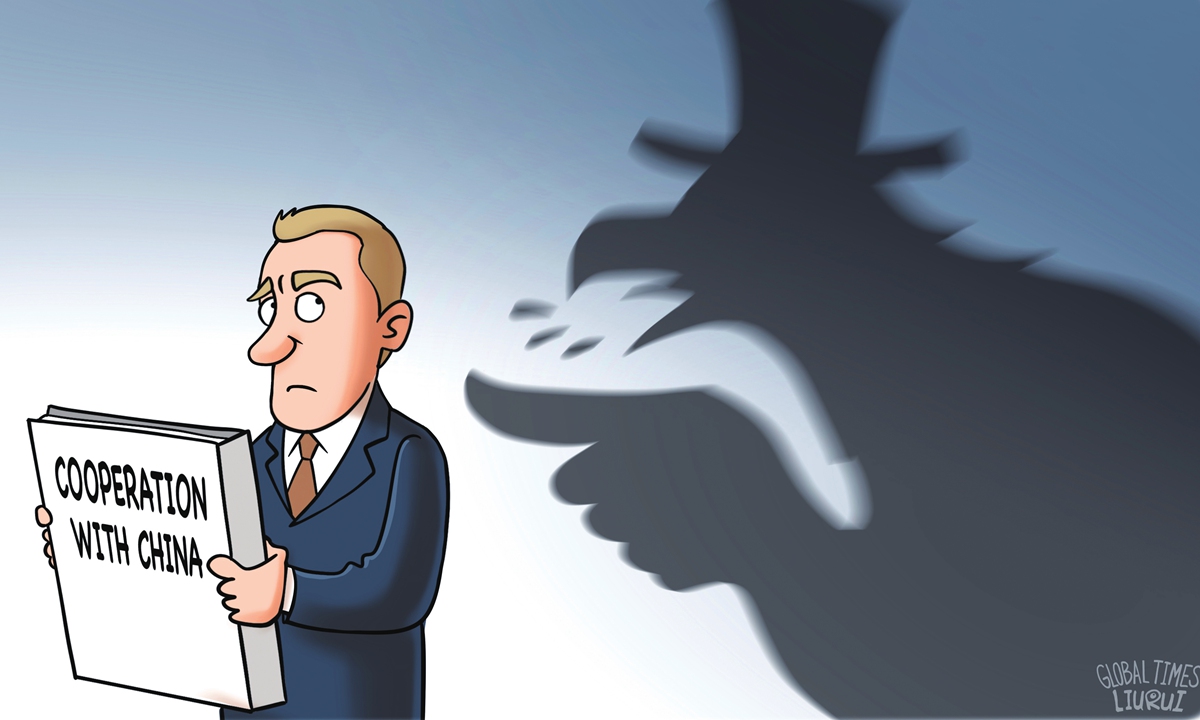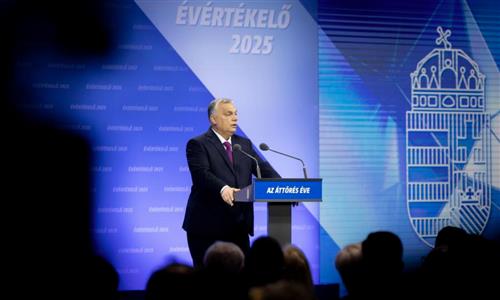US attempt to disrupt China-Hungary ties through ‘soft coercion’ will not succeed

Illustration: Liu Rui/GT
On Tuesday, Robert Palladino, the Chargé d'Affaires of the US Embassy in Hungary, publicly warned the Hungarian government in Budapest to "be vigilant about attracting Chinese investments," claiming that China poses a "strategic challenge" to the US and its allies. Anyone with discernment can see his intention to sow discord in the relationship between China and Hungary. However, he claimed that this was not about "lecturing," nor was it about "choosing sides." Such contradictory and hypocritical remarks reveal Washington's growing anxiety over China-Europe relations.
"This clearly reflects strategic coercion," Lü Xiang, an expert on US studies and a research fellow at the Chinese Academy of Social Sciences, told the Global Times. It is, in essence, a blatant interference in other countries' policy independence by the US, he noted.
The US has a long-standing habit of using so-called security as pretexts to issue veiled warnings and coercive "advice" to third countries, pressuring them to conform to its own strategic logic. According to The Wall Street Journal on Tuesday, the US is planning to use tariff negotiations as a tool to isolate China. Against the backdrop of the US trade war, Palladino's remarks were intended to leverage diplomatic pressure and coercion to disrupt China-Hungary relations.
In recent years, Prime Minister Viktor Orban's government has pursued its "Opening to the East" strategy with determination, actively engaging with China's Belt and Road Initiative. Hungarian Foreign Minister Peter Szijjarto stated recently that Hungary has attracted 44 percent of China's European investment in recent years. However, this independent and pragmatic approach to diplomacy has drawn concern from Washington.
"Once countries begin to make choices based on their own interests, it becomes increasingly difficult for the US to maintain its dominance through ideological divisions," said Lü. Since the new US administration took office this year, its stance toward Europe has become increasingly assertive. Amid strained US-Europe relations, Washington fears that China-Hungary ties could become a model for China-Europe relations, prompting other countries to make foreign policy choices based on their own national interests rather than aligning with American agendas.
Lü believes the US strategy of dividing China from its partners won't succeed. Washington has sought to frame what should be sovereign economic decisions within a geopolitical context - treating cooperation as a risk, and development as a threat. This not only severely infringes on other countries' legitimate right to develop but also reveals the US own insecurity about its international standing. In the face of an increasingly open, rational and cooperation-oriented China, the US persistent use of coercion will only backfire, pushing more countries to cherish and defend their policy independence.
The US representative claimed that this is not about "choosing sides," but rather about "preserving control over one's own future." In truth, those who genuinely control their own future are the countries that reject coercion and make independent choices in selecting their partners. For European countries including Hungary, real autonomy lies not in following a major power's strategic blueprint, but in developing international cooperation based on mutual benefit and alignment with national interests.
Hungary's China policy and "Opening to the East" strategy are the results of careful planning based on pragmatic interests. Washington's attempt to disrupt this trajectory through "soft coercion" not only exposes its hegemonic mind-set but also underestimates the resilience of China-Hungary relations. At a time when the global geopolitical order is changing, no country should become a puppet of another power's strategy. Only by adhering to multilateralism, maintaining strategic independence and pursuing diversified economic cooperation can a country truly take charge of its own destiny.



